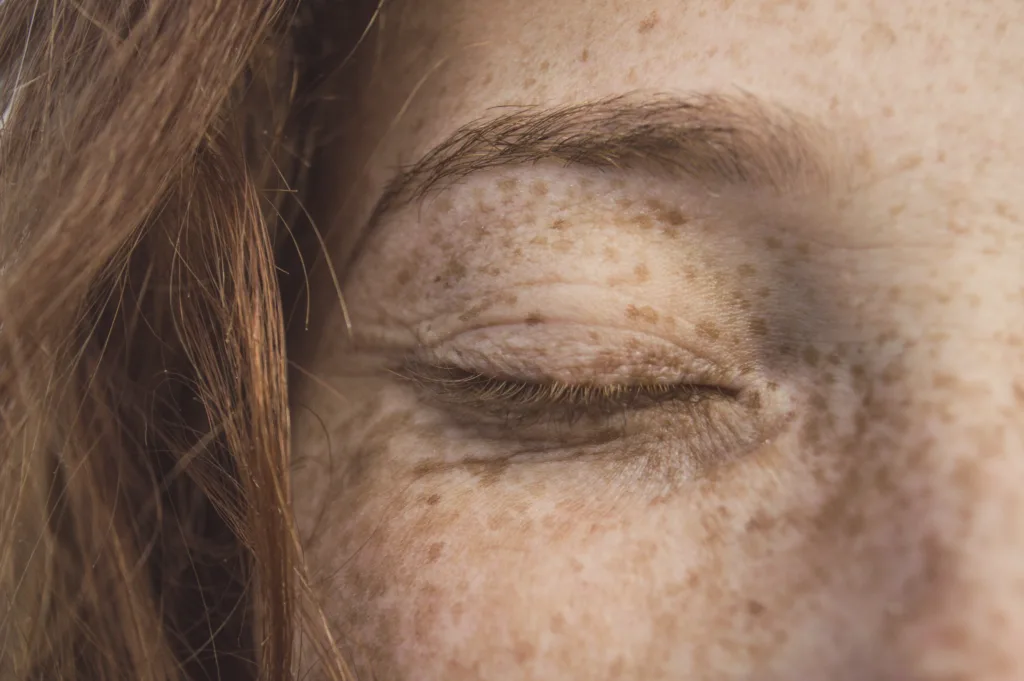Sebum is a natural oil that is produced by the sebaceous glands in the skin. It is a waxy, oily substance that is secreted through the hair follicles and onto the surface of the skin. Sebum plays an important role in protecting the skin from environmental damage and keeping it moisturized. In this article, we will explore the functions of sebum and its importance for skin health.
One of the main functions of sebum is to lubricate the skin and protect it from friction. The oily nature of sebum helps to reduce the friction btween the skin and clothing, which can help to prevent skin irritation and chafing. Sebum also helps to make the skin more impervious to moisture, which helps to prevent the skin from becoming too dry.
Another important function of sebum is its role in transporting antioxidants to the skin’s surface. Sebum contains fat-soluble antioxidants, such as vitamin E, which are transported to the skin’s surface where they can help to prevent oxidative damage. Oxidative damage is caused by free radicals, which are unstable molecules that can damage skin cells and cause premature aging.
In addition to these functions, sebum also possesses innate antibacterial activity and has a pro- and anti-inflammatory function. Sebum contributes 90% of the lipids on the skin’s surface, which help to lock in moisture and protect the skin from UV radiation and other causes of harm. Sebum also helps to soften and lubricate the hair and skin, and acts as a bactericidal agent.
Sebum plays a vital role in maintaining healthy skin. Its functions include lubricating the skin, protecting it from friction and moisture, transporting antioxidants to the skin’s surface, and possessing innate antibacterial activity. To maintain healthy skin, it is important to maintain a proper balance of sebum production, and to avoid using harsh soaps and other products that can strip the skin of its natural oils.
What Are Two Functions Of Sebum?
Sebum serves two primary functions for the skin. Firstly, it lubricates the skin to protect against friction and makes it more impervious to moisture. This helps to prevent the skin from becoming dry and cracked, which can lead to irritation and infection. Secondly, the sebaceous gland transports antioxidants in and on the skin and exhibits a natural light protective activity. It possesses an innate antibacterial activity and has a pro- and anti-inflammatory function. These functions help to protect the skin from environmental damage and infection, and to maintain its overall health and appearance.

Why Is The Sebum Important?
Sebum is an oily substance produced by the sebaceous glands in the skin. It plays a crucial role in protecting and moisturizing the skin. The following are some of the reasons why sebum is important:
1. Moisturizes the skin: Sebum contains lipids, which are fats that lock in moisture and prevent the skin from drying out. This helps to keep the skin soft, smooth, and supple.
2. Protects the skin: The lipids in sebum also act as a barrier that protects the skin from environmental factors such as UV radiation, pollutants, and harsh weather conditions. This helps to prevent damage to the skin and keep it healthy.
3. Provides antioxidants: Sebum transports fat-soluble antioxidants, such as vitamin E, to the skin’s surface. These antioxidants help to neutralize free radicals that cause oxidative damage to the skin. This can help to prevent premature aging and other skin problems.
4. Helps regulate body temperature: Sebum helps to regulate body temperature by evaporating from the skin’s surface and cooling the body down. This is why we may feel sweaty when we are hot or exercising.
Sebum is important because it moisturizes, protects, provides antioxidants, and helps regulate body temperature.
What Is The Function Of Sebum In Hair?
Sebum serves several functions in hair. Firstly, it acts as a natural conditioner, keeping the hair soft and shiny. Secondly, it helps to protect the hair from damage by forming a protective barrier around each strand. Sebum also helps to keep the hair and scalp moisturized by preventing water loss, which can lead to dry and brittle hair. Additionally, sebum has antimicrobial properties that help to prevent infections and other skin conditions on the scalp. It also helps to regulate the growth and shedding of hair follicles. sebum plays an important role in maintaining healthy, strong, and vibrant hair.
What Is The Function Of Sebum Quizlet?
Sebum is the oily substance that is naturally produced by the sebaceous glands in the skin. The function of sebum is to lubricate and soften both the hair and skin, providig a protective barrier against external environmental factors such as wind, cold, and heat. Additionally, sebum acts as a bactericidal agent, protecting the skin against harmful microorganisms. The antimicrobial properties of sebum are attributed to the presence of fatty acids that are released as a result of the breakdown of triglycerides in sebum. Therefore, sebum plays a crucial role in maintaining the health and integrity of the skin and hair.

Conclusion
Sebum is an essential substance that plays a crucial role in maintaining healthy skin and hair. It provides natural lubrication to the skin, protects it from harmful environmental factors such as UV radiation, and transports antioxidants to the skin’s surface to prevent oxidative skin damage. Moreover, sebum exhibits antibacterial activity and has pro- and anti-inflammatory properties. While excess sebum production can lead to skin and scalp issues, such as acne and dandruff, its presence in moderate amounts is beneficial for overall skin health. Therefore, it is essential to maintain a balance of sebum production to ensure healthy, radiant skin.
